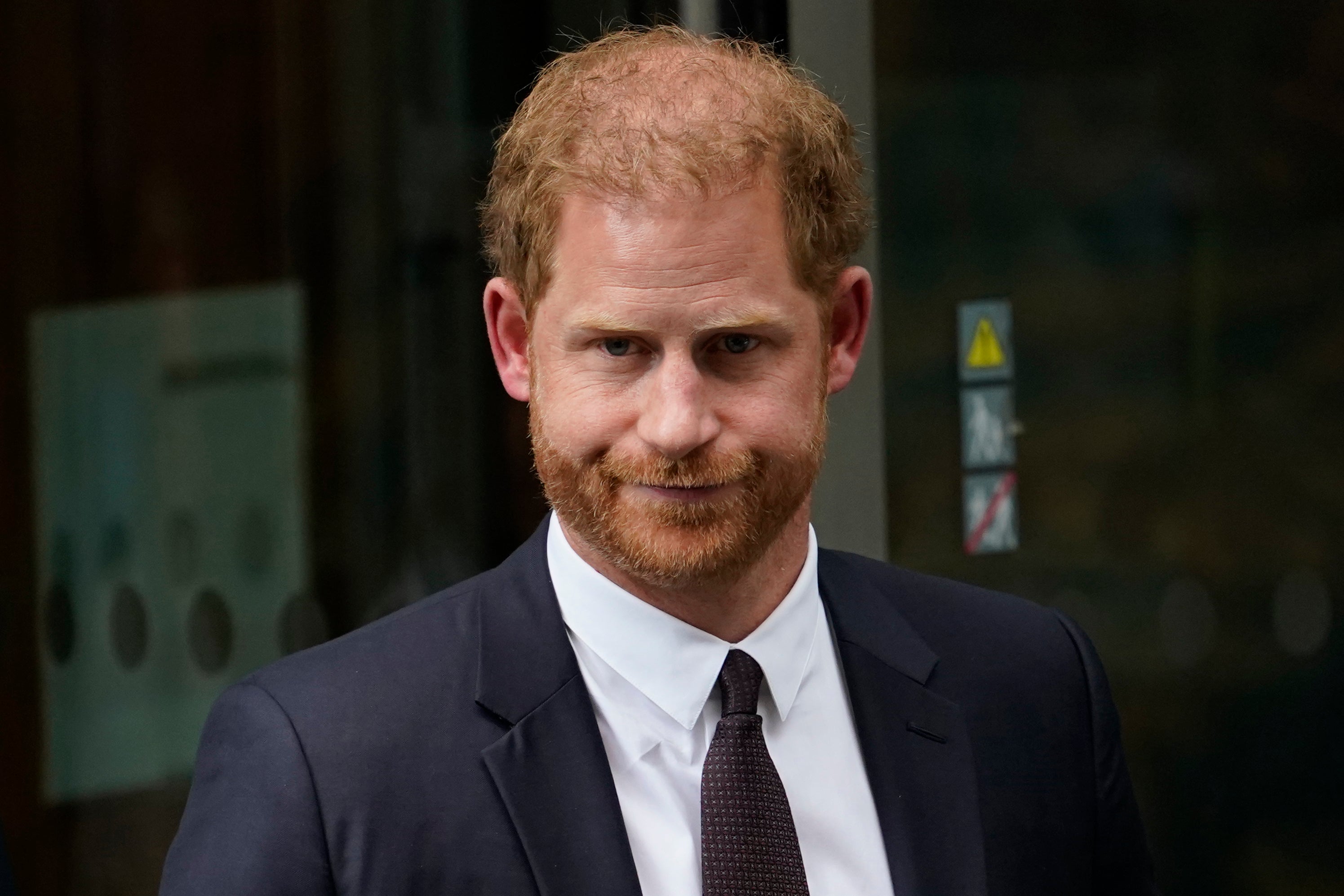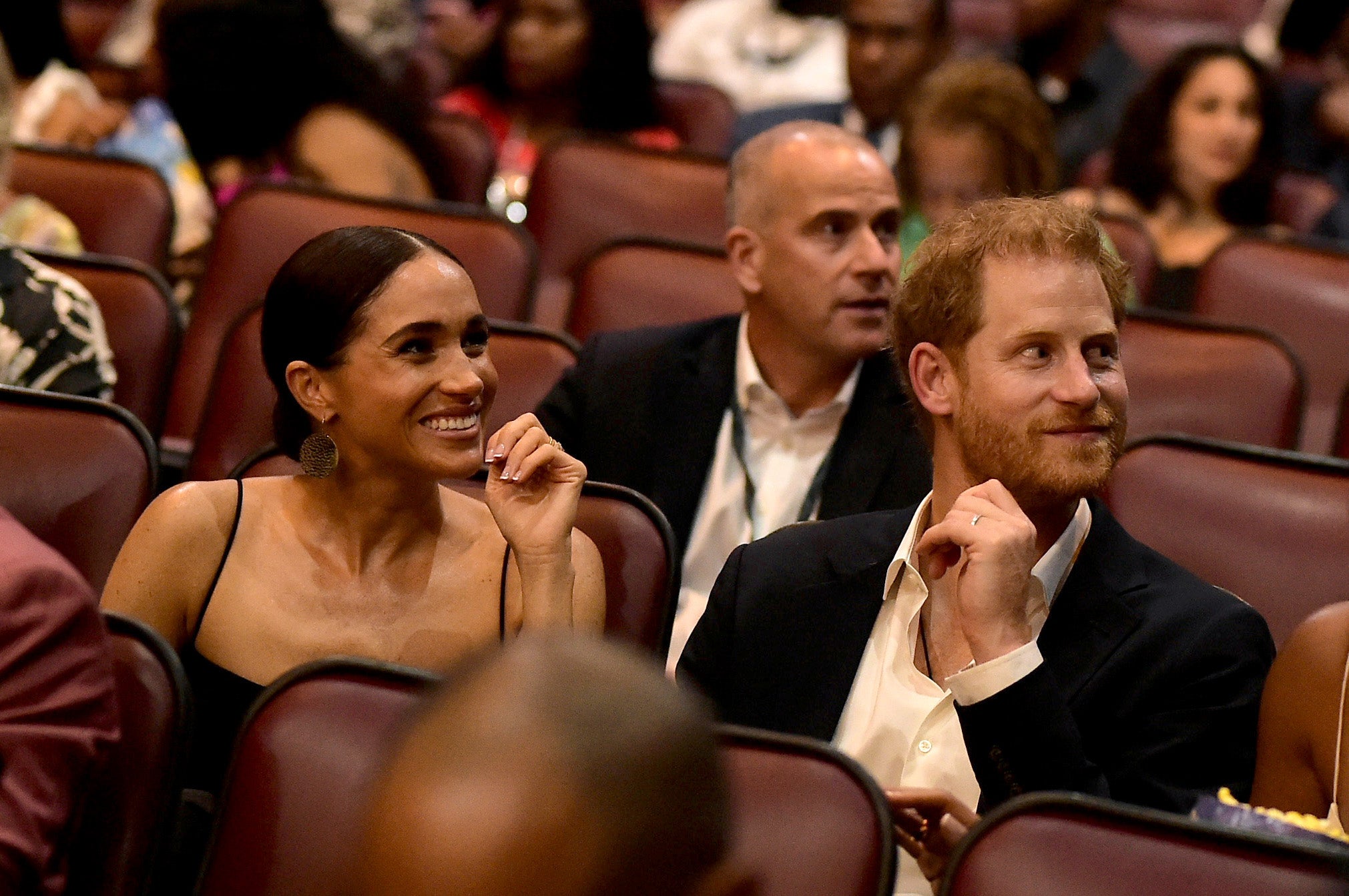Prince Harry pursues 115 further phone hacking claims after Mirror victory
A High Court judge found that 15 out of 33 articles were the product of phone-hacking, including articles about his former girlfriend Chelsy Davy
A phone hacking case brought by the Duke of Sussex and other celebrities against Mirror Group was “overwhelmingly successful” with demands made for the publisher to pay out nearly £2m in costs, a court heard.
Prince Harry’s case against Mirror newspapers remains ongoing as he presses ahead with a further 115 articles that he claims were sourced unlawfully, with decisions on costs reserved until this is determined.
Last month, a judge ruled that hacking became widespread and habitual at the publisher’s newspaper titles, and took place to some extent even during the Leveson Inquiry into press standards.
Articles which were found to have been the product of hacking included those about the prince smoking cannabis at a country pub, a disagreement with Prince William about whether they should meet their mother Diana’s former butler and several articles about his relationship with then-girlfriend Chelsy Davy.
In a follow-up hearing dealing with the consequences of the ruling, the High Court heard that the group of people who sued Mirror Group are seeking £1,976,660 towards legal costs.
David Sherborne, for the group, said: “We were the overall winners, clearly… we were overwhelmingly successful.”

The judge also found that Mirror Group editors knew about voicemail interception and unlawful information, and added that he found it “convincing” ex-Daily Mirror editor Piers Morgan had known about the activity while he was in charge of the paper.
Mr Morgan, who edited the paper from 1995 to 2004, denied he had instructed any phone hacking and accused Harry of wanting to destroy the monarchy in a scathing attack outside his home.
In a televised statement, the TalkTV host said: “I want to say this: Prince Harry’s outrage at media intrusion into the private lives of the royal family is only matched by his own ruthless, greedy and hypocritical enthusiasm for doing it himself.”
His rebuttal came after the judge accepted an account by royal commentator Omid Scobie, who told the court that he had heard a journalist inform Mr Morgan that a scoop about Kylie Minogue had been sourced from voicemail interception.
Harry, 39, said his partially successful case against Mirror Group was “a great day for truth, as well as accountability” and called on the police to investigate the publisher of the Daily and Sunday Mirror and The People.
Naming Mr Morgan, who has been an outspoken critic of the Sussexes, he said: “The court has found that Mirror Group’s principal board directors, their legal department, senior executives and editors, such as Piers Morgan, clearly knew about, or were involved in, these illegal activities.
“Between them, they even went as far as lying under oath to parliament, during the Leveson inquiry, to the stock exchange, and to us all ever since.
The duke became the first royal in 130 years to appear in a witness box over the course of the seven-week trial, with the judge ruling that his case against Mirror Group was proved in part only.

He said that 15 of the 33 articles about Harry examined at trial were the product of phone hacking of his mobile phone or the mobile phones of his associates, or the product of other unlawful information gathering.
It was found that unlawful information gathering was widespread at all three Mirror Group titles from 1996 onwards, and phone hacking became habitual from 1998, and was continued until as late as 2011.
In his 386-page judgement, he said: “The duke has been one of the most important storylines in town for much of his life, and remains so. The idea that MGN carefully eschewed in his case what had become a primary journalistic tool – which it otherwise used on a widespread and habitual basis – is unconvincing.”
The unlawful activity was concealed from parliament, shareholders and the public, as well as the board overseeing Mirror Group.
In a hearing on Monday, the High Court heard there are a further 115 articles in his claim and that decisions about the cost in his case would be reserved until the rest of his claim in determined.
Mr Sherborne said in written submissions: “Although the duke is certainly prepared to attempt to resolve the remainder of his claim through agreement, it is necessary to list the trial of the remainder of his claim as soon as is practicable.”
Harry’s case was heard alongside similar claims brought by actor Michael Turner, who is known professionally as Michael Le Vell and is most famous for playing Kevin Webster in Coronation Street, actress Nikki Sanderson and Fiona Wightman, the ex-wife of comedian Paul Whitehouse.

Claims brought by Ms Sanderson and Ms Wightman were dismissed by Mr Justice Fancourt because they were made too late, despite the judge finding that some of their complaints were proved.
Mr Turner was awarded a total of £31,650 in damages after the judge ruled his phone hacking and unlawful information-gathering case was proved only to a limited extent.
On Monday, Mr Sherborne said there were 100 “live” claims against the publisher, however, Mirror Group’s lawyers told the court that around 75 per cent of these could be found to have been brought too late.
Mirror Group largely contested the claims and denied that any newspaper articles complained of resulted from phone hacking, while contending that the vast majority did not arise from any other unlawful activity.
An Mirror Group spokesperson said: “We welcomed December’s judgment that gave the business the necessary clarity to move forward from events that took place many years ago.
“Where historical wrongdoing took place, we apologise unreservedly, have taken full responsibility and paid compensation.”
Harry’s representatives were approached for comment.
Join our commenting forum
Join thought-provoking conversations, follow other Independent readers and see their replies
Comments
Bookmark popover
Removed from bookmarks